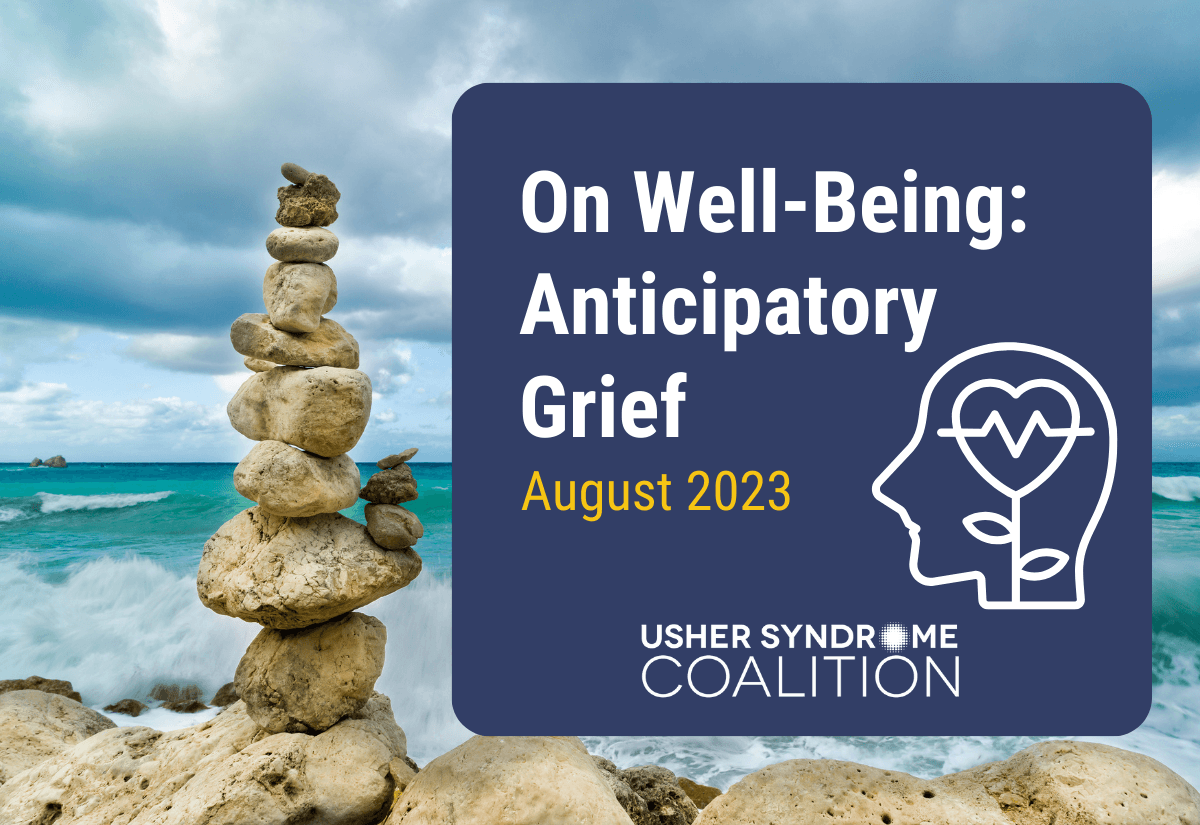
Anticipatory grief is defined as a state of deep, painful sorrow that can occur before an impending loss, such as being diagnosed with a progressive condition like Usher syndrome. It’s the grief you are expecting to experience; it’s a rollercoaster of holding onto hope for the future combined with intense anxiety.¹ People living with Usher syndrome experience loss of vision, hearing, and sometimes balance. Secondary losses may include plans for the future, driving, and a sense of independence, among others.
Other emotions may be felt in tandem with grief, like guilt or a sense of helplessness watching a loved one slowly lose their vision. People living with USH may start to worry about how others perceive them and develop fears of abandonment as the loss progresses. They may also experience difficulty in communication, mobility, activities of daily living, and social interactions, causing them to feel isolated, insecure, and uncertain about their future. ²
Anticipatory grief can be helpful in coping by preparing for the future loss, exploring the emotions beforehand, and coming to terms with changed future plans for living with the circumstances. ³ It can give someone a chance to confront their fears and proactively choose to keep moving forward, leaving them better equipped to navigate the progressive nature of Usher syndrome.
It’s easy to get lost in the anxiety of wondering what the future holds, causing people to struggle to enjoy the present. There is almost a sense of holding your breath, refusing to breathe until it’s all over. Verywellhealth.com notes that anticipatory grief may be a risk factor for prolonged grief disorder, a psychiatric condition characterized by intense and persistent grief that interferes with daily life that warrants guidance from a mental health professional. ⁴
Some ways to help cope with anticipatory grief include:
- Accept reality
- Share your feelings openly
- Hold onto hope
- Prepare for the future
Each of these steps is enormous and will not be easy to accomplish. Seek support from friends, family, and other loved and trusted people in your world. Seek professional support if needed. Perhaps most important, connect with and lean on other folks with Usher syndrome for empathy and understanding regarding shared experiences.
References:
- Lynne Eldridge, MD (2023) What Is Anticipatory Grief?.VeryWellHealth. https://www.verywellhealth.com/understanding-anticipatory-grief-and-symptoms-2248855
- Jaiswal A, Aldersey H, Wittich W, Mirza M, Finlayson M. (2018). Participation experiences of people with deafblindness or dual sensory loss: A scoping review of global deafblind literature. PLoS ONE 13(9): e0203772. https://doi.org/10.1371/journal.pone.0203772
- Kylie B. Rogalla. (2020). Anticipatory Grief, Proactive Coping, Social Support, and Growth: Exploring Positive Experiences of Preparing for Loss. Omega- Journal of Death and Dying 81(1) 107-129. https://doi.org/10.1177/0030222818761461
- APA (2022). https://www.psychiatry.org/patients-families/prolonged-grief-disorder







